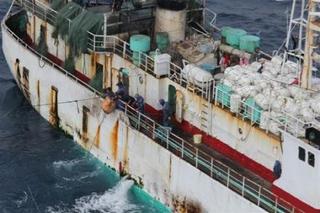New Bill Aims to Restrict Pirate Fishing

Tuesday, December 13 2011
A piece of legislation meant to help curb illegal fishing was introduced in the Senate yesterday. The Pirate Fishing Elimination Act would prohibit foreign vessels that could be carrying unreported and unregulated catch from entering American ports and offloading their fish.
The bill backs up a commitment the United States made in 2009 during the negotiations of an international accord to curb pirate fishing. That treaty still hasn’t been ratified, but this new legislation put in place a lot of the implementation measurements that it requires.
Right now, the United States already has regulations that prohibit foreign vessels from delivering their catch to American ports, but this bill would make those regulations even tougher. In addition to restricting port entry to fishing vessels boats suspected of piracy, the bill would also allow the government to block access to cargo ships and other support vessels that might have illegal catch on board.
Dean Swanson is the chief of the international fisheries relations division with the National Marine Fisheries Service. He says that this legislation turns pirate fishing into an economic issue.
“The tools we’ve had up to now were rules that basically said ‘It’s illegal to do this, and it’s illegal to do that,” says Swanson. “That sort of left the [illegal, unreported, and unregulated] fishing problem as a matter of enforcement.”
The legislation was introduced by Sen. Daniel Inouye of Hawaii, and Alaska Sens. Lisa Murkowski and Mark Begich have signed on as co-sponsors.
Pirate fishing recently received international attention when the drift-netter Bangun Perkasa was apprehended by the Coast Guard, and members of the Alaska congressional delegation called for its sinking. The stateless vessel was carrying a sizeable catch of squid and shark, and was brought to Unalaska.



